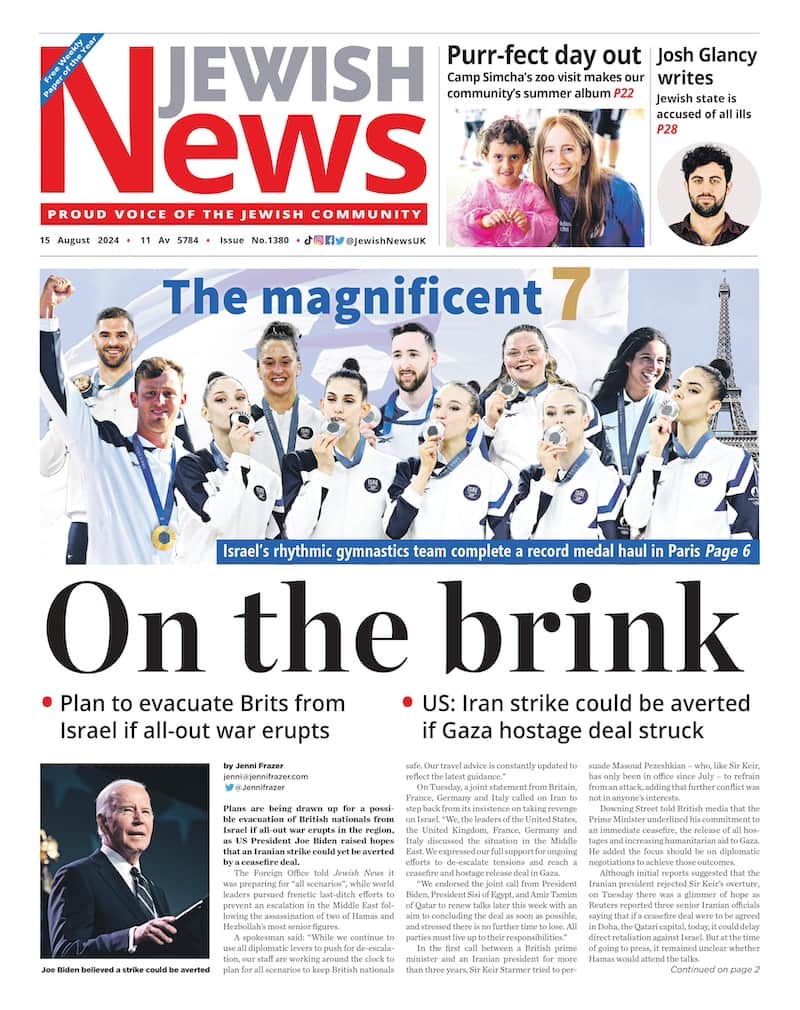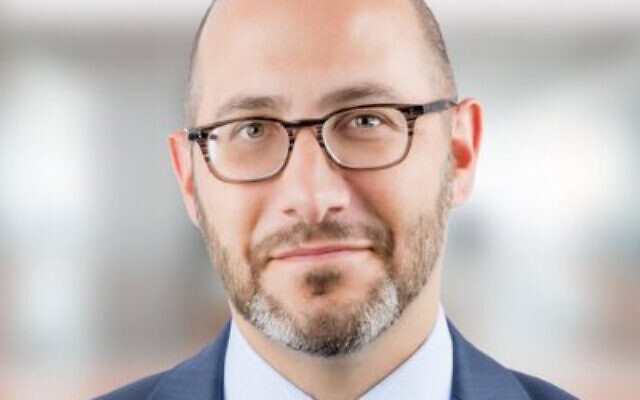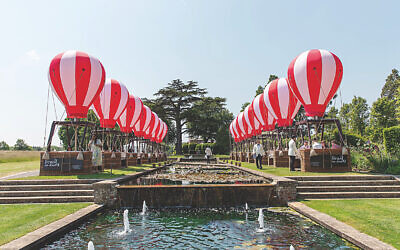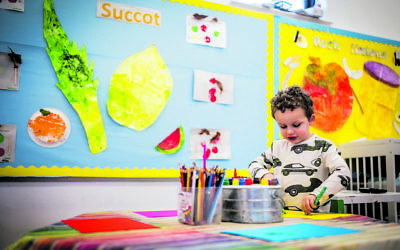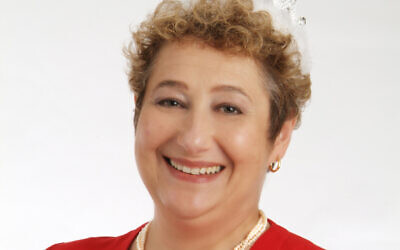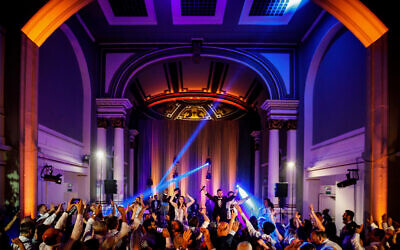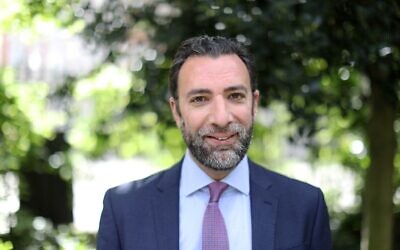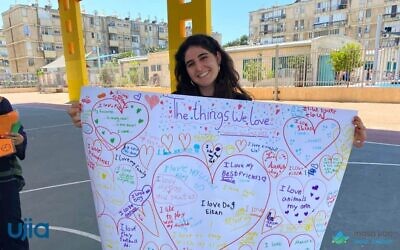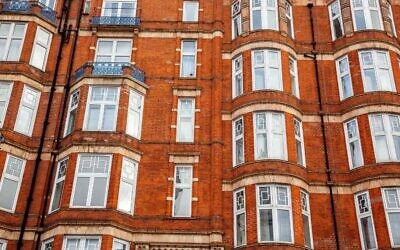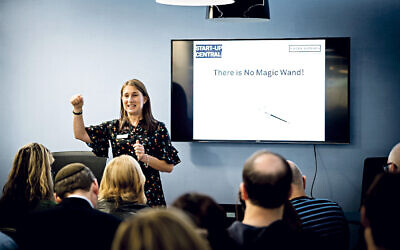‘Standing with children who too often had nobody else made me a better Jew’
Ex-public defender for children in New Orleans has written a novel based on his experiences
I lived in New Orleans during the years after Hurricane Katrina, as head of the city’s public defender for children. My novel, Seraphim, is my best effort at telling the truth about the boys I worked with – a truth I could never tell without the shroud of fiction. After all, if I couldn’t protect ‘my boys’ at least I could respect their privacy. The book is also about the experience of being a witness to injustice. In other words: it’s a Jewish book, informed as much by yeshiva as by law school.
The team I led worked for just about every youth in the city – as young as 10, as old as 21 – accused of committing a crime. Some of them had done terrible things. Almost all had terrible things done to them. One summer I went to four funerals of boys, the oldest just 17. One shot down with his father, holding each other; another killed on his own doorstep; in the back of a car on an interstate; at a parade, surrounded by music and celebration. At each funeral, the surviving boys would be clustered in the back of the church, each wearing their Sunday best, lining up to be next.
When the boys were killed – and dozens were – I’d go by their homes with some food and money for the funeral. Then that night I’d park my car outside the coroner’s office, sweating and drinking bad beer in the swamp heat. I was a shomer, a guardian. We don’t leave our dead alone until their bodies are accepted back into the earth.
When the storm hit, in August of 2005, the boys I worked with were all uprooted and scattered around the country. Some lived in motels or trailers for months or years. They knew upheaval, exile, poverty, vicious racism. They came home to a shrunken, disjointed city, violent and beautiful. In the early years after the storm, looking down from the high windows of the public defender’s office at night, I could always see fires from drug labs and hear the hollow pop of gunshots.
I went to an Orthodox high school and then spent a year at a West Bank seminary, but it wasn’t my Jewishness that made me a public defender. My colleagues – many far better lawyers and people than I – subscribed to all faiths and no faith. Instead, being a public defender, standing with children who too often had nobody else, made me a better Jew. I came to better understand our history and our texts, which reminded me that strength is something different – subtler, more flexible, more enduring – than mere toughness; real justice often has nothing to do with judging; prophecy – the imagination to develop a moral vision, and the voice to describe it – grows out of not triumphalism but out of trepidation, fear, uncertainty, and hope; power is not a moral reward but an accident of history; law is an argument, not a conclusion; strangeness and difference are the fertile soil that helps us cultivate empathy.
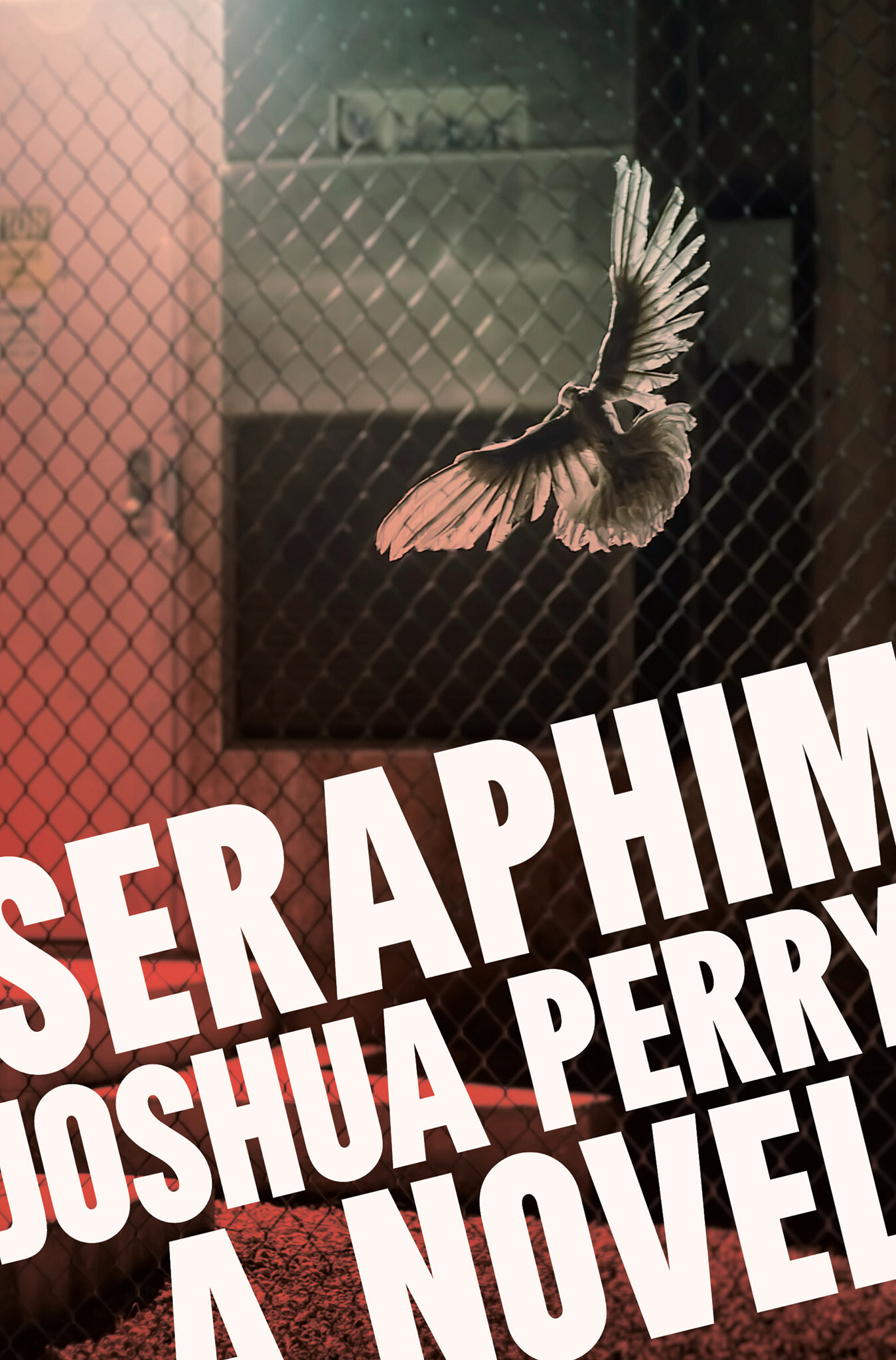 And the warm, tightknit Jewish community in New Orleans sheltered and sustained me through a decade of tragedy that nothing in my privileged life had prepared me for. When my office held a rally on the steps of City Hall to get young children out of the festering, brutal adult jail, my rabbi came in his talit and prayed alongside us. Another rabbi welcomed and converted my wife, driving five hours with us to the nearest mikvah. Our three girls were born into a sacred community that wanted what we wanted, and what Jews have prayed for going back to the words of Isaiah’s opening chapter, a just city.
And the warm, tightknit Jewish community in New Orleans sheltered and sustained me through a decade of tragedy that nothing in my privileged life had prepared me for. When my office held a rally on the steps of City Hall to get young children out of the festering, brutal adult jail, my rabbi came in his talit and prayed alongside us. Another rabbi welcomed and converted my wife, driving five hours with us to the nearest mikvah. Our three girls were born into a sacred community that wanted what we wanted, and what Jews have prayed for going back to the words of Isaiah’s opening chapter, a just city.
We left New Orleans for a safer, blander city when my wife, also a public defender, transitioned to a law teaching job. We were both exhausted. For a long time, I wasn’t able to write about my experience. I still didn’t feel I really understood. I saw the death and triumph in my clients’ lives, but it wasn’t my own. Trial lawyers know that witnesses don’t always see and hear things as they are. We bring our biases, preconceptions and flaws to everything we do.
One cold New England winter Shabbat, though, I listened to the Haftorah – Isaiah’s story of feeling nothing but shame and inadequacy in the divine presence. “I am undone,” he laments. “I am a man of unclean lips – but my eyes saw the Lord of Hosts.” He knew he was unworthy of testifying to something fundamentally unknowable. But he also couldn’t be silent. This condition – the simultaneous imperative and impossibility of bearing witness while standing apart, seeing as best you can both through difference and because of difference – is the most profoundly Jewish thing about Seraphim.
My boys are the seraphim, or fiery angels, of the book’s title. I’ve tried to see them and talk about them as they were – brave, funny, resigned, joyful, frightened, sad, furious. I hope there’s truth in that, and the humility and empathy that our tradition demands of us.
Seraphim is published by Melville House, £13.59

Thank you for helping to make Jewish News the leading source of news and opinion for the UK Jewish community. Today we're asking for your invaluable help to continue putting our community first in everything we do.
For as little as £5 a month you can help sustain the vital work we do in celebrating and standing up for Jewish life in Britain.
Jewish News holds our community together and keeps us connected. Like a synagogue, it’s where people turn to feel part of something bigger. It also proudly shows the rest of Britain the vibrancy and rich culture of modern Jewish life.
You can make a quick and easy one-off or monthly contribution of £5, £10, £20 or any other sum you’re comfortable with.
100% of your donation will help us continue celebrating our community, in all its dynamic diversity...
Engaging
Being a community platform means so much more than producing a newspaper and website. One of our proudest roles is media partnering with our invaluable charities to amplify the outstanding work they do to help us all.
Celebrating
There’s no shortage of oys in the world but Jewish News takes every opportunity to celebrate the joys too, through projects like Night of Heroes, 40 Under 40 and other compelling countdowns that make the community kvell with pride.
Pioneering
In the first collaboration between media outlets from different faiths, Jewish News worked with British Muslim TV and Church Times to produce a list of young activists leading the way on interfaith understanding.
Campaigning
Royal Mail issued a stamp honouring Holocaust hero Sir Nicholas Winton after a Jewish News campaign attracted more than 100,000 backers. Jewish Newsalso produces special editions of the paper highlighting pressing issues including mental health and Holocaust remembrance.
Easy access
In an age when news is readily accessible, Jewish News provides high-quality content free online and offline, removing any financial barriers to connecting people.
Voice of our community to wider society
The Jewish News team regularly appears on TV, radio and on the pages of the national press to comment on stories about the Jewish community. Easy access to the paper on the streets of London also means Jewish News provides an invaluable window into the community for the country at large.
We hope you agree all this is worth preserving.

